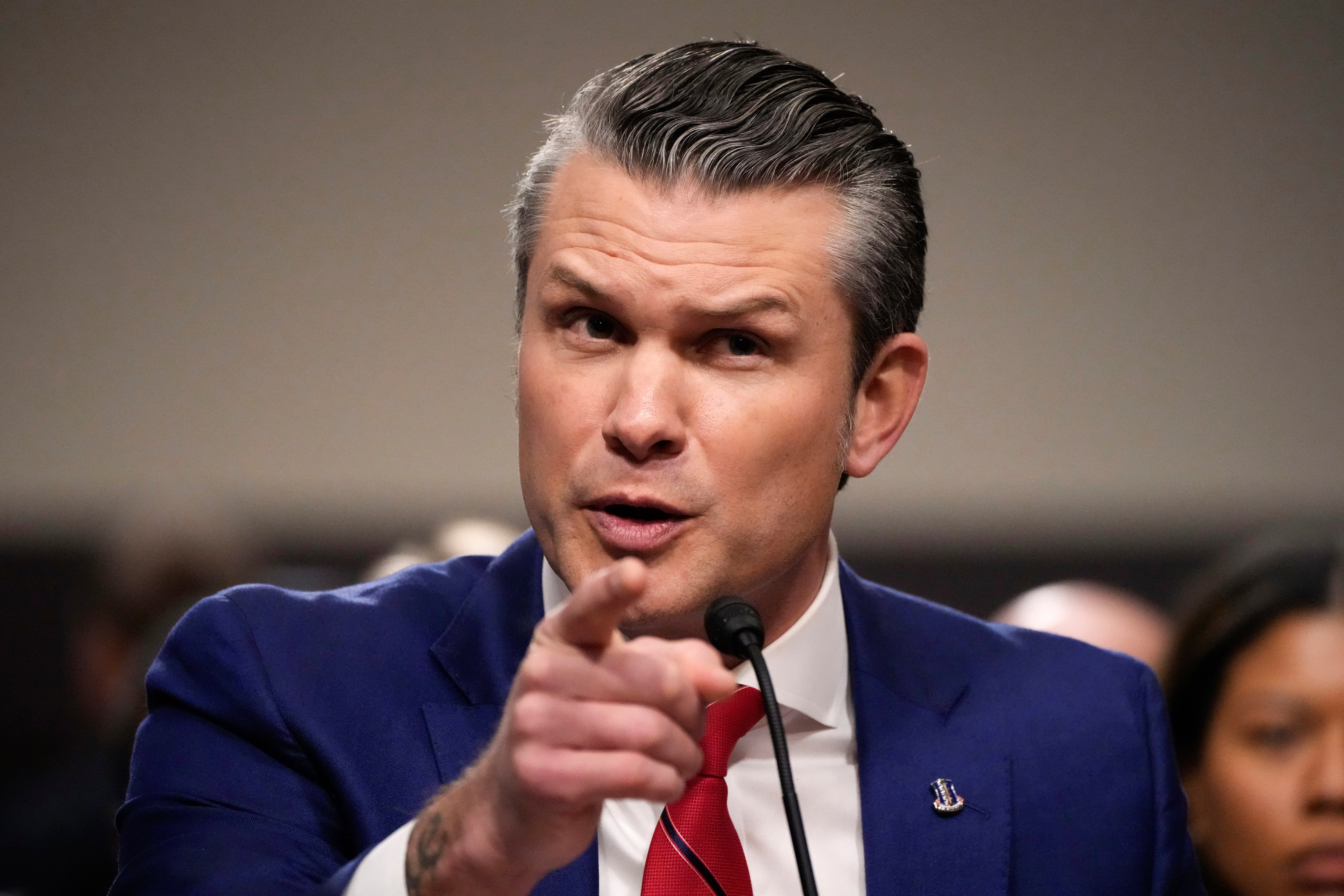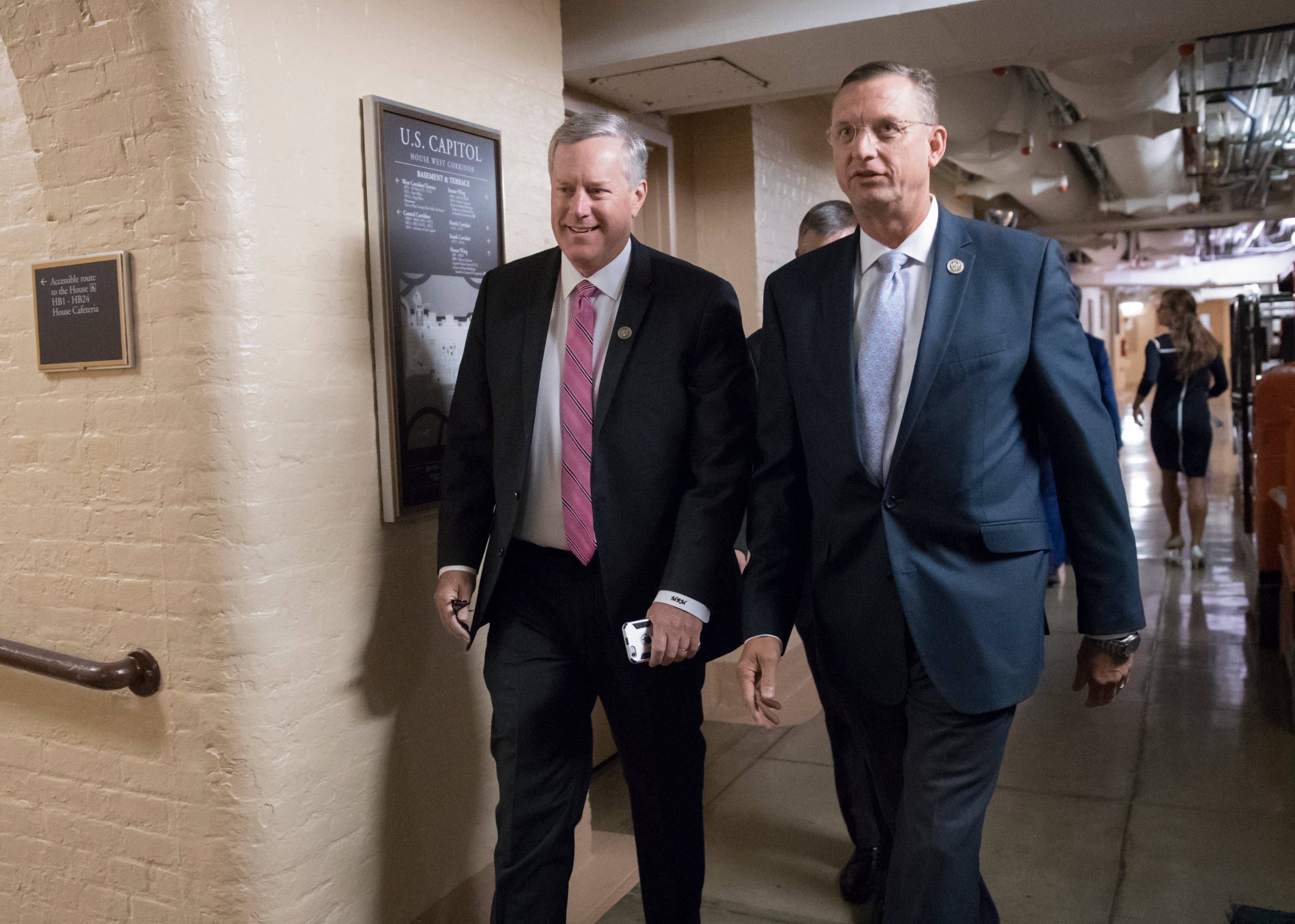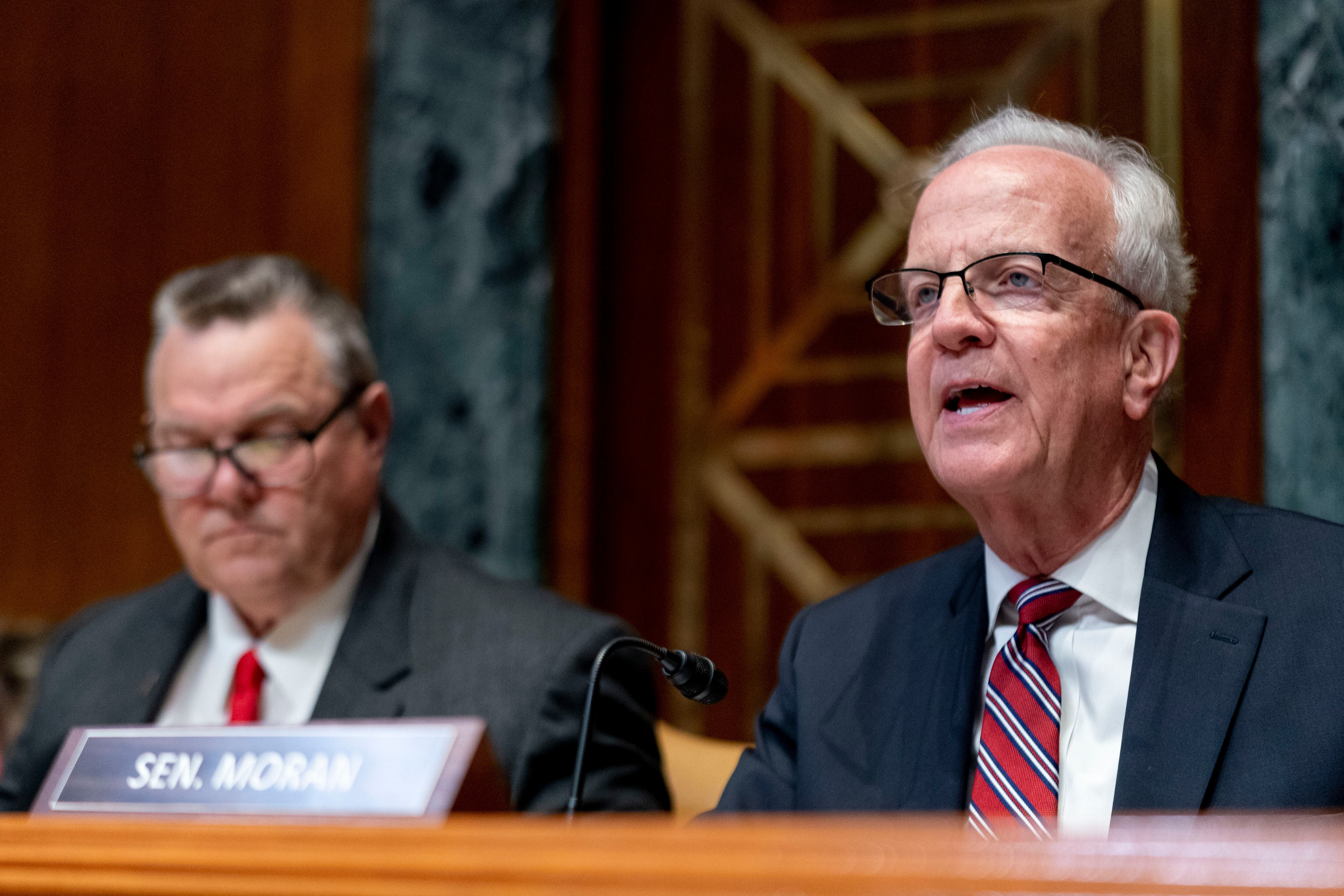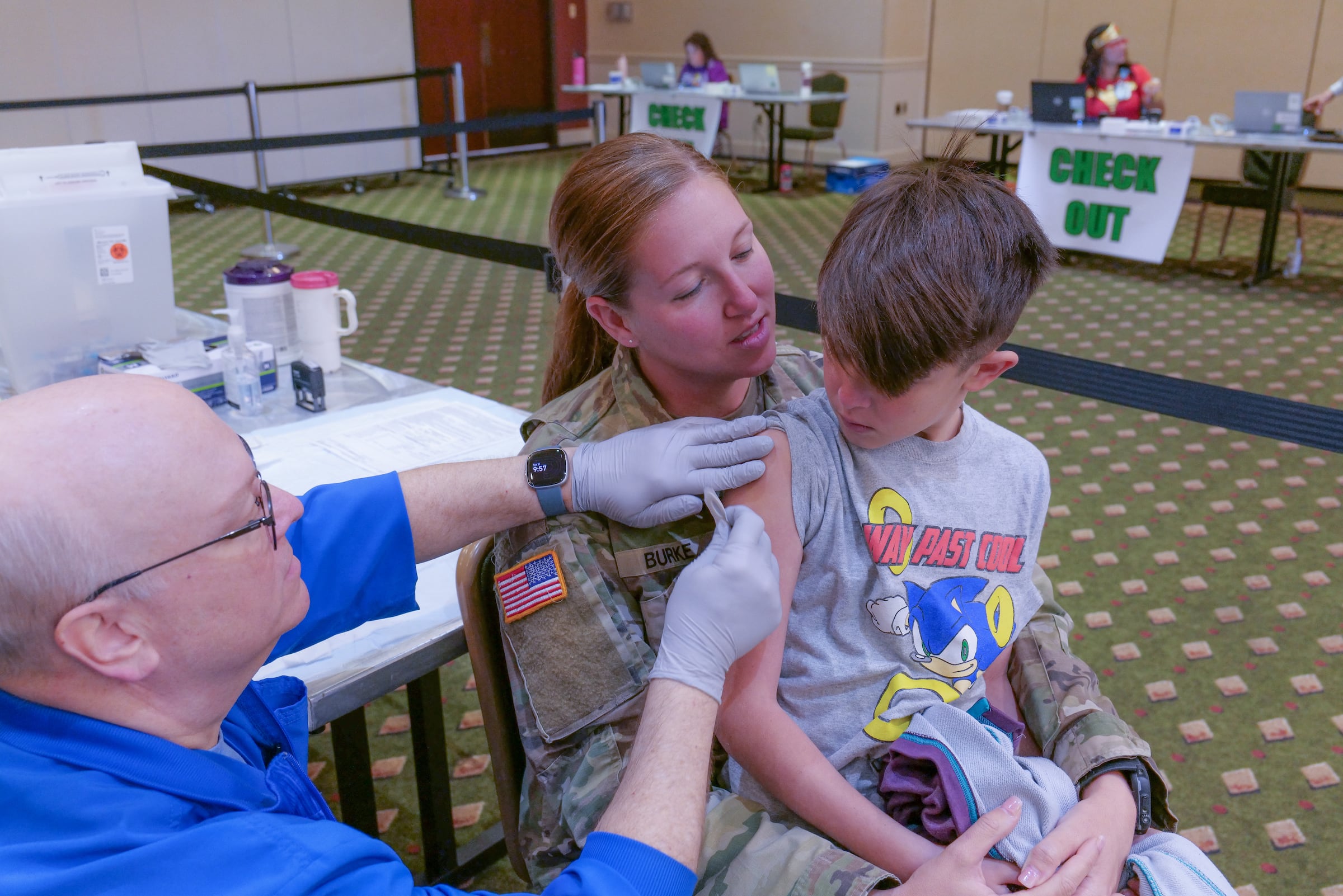WASHINGTON ― Congress’ recently passed fiscal 2022 National Defense Authorization Act, which included authorization for a $25 billion boost over President Joe Biden’s defense budget request, received strong bipartisan support in both chambers.
But the House Armed Services Committee’s top Republican, Rep. Mike Rogers, says all that hard work is in danger of being undone. That’s because Congress has been unable to finalize appropriations for the year and could punt to a full-year continuing resolution that sets spending at FY21 levels.
“I mean, these CRs are killing us,” the Alabama lawmaker told Defense News in a Dec. 15 interview. “If they do another CR in February to the end of the year, it’s going to basically cost [the Pentagon] $40 billion. It’s going to negate everything we just did in this authorization, plus more. And it’s just literally un-American if we aren’t doing a better job to provide for our military than that.”
This interview was edited for length and clarity.
You started the year asking for a 3%-5% increase for defense over inflation, and now we have an NDAA that has $25 billion more than the president requested. What message does this send to appropriators for an FY22 budget deal and to the White House for an FY23 defense budget request?
The whole reason why we were pushing for 3-5% is we’re in the process of rebuilding the military and a modernization effort that’s going to take at least a decade. We want to be prepared to deal with threats from China in the long term but also more short-term concerns with Russia, North Korea and Iran. I think the Pentagon is probably not unhappy about this [added authorization]. I think that the president had to try to appease the far left with that budget proposal, but they’re not stupid, they know we have to do this.
When the secretary of defense and service chiefs were [testifying on the budget], they were trying their best to put lipstick on this pig, but they were hoping to goodness we run over them because they know what we have to do. That, and the large bipartisan votes that we got, is indicative support for what we’re going to have to do. That’s what I plan to carry over into the next year. I’m not going to stop this drumbeat because we still have a long way to go.
We are the only committee in Congress that is getting this work done, and I’m so proud of the fact that we have not let the toxicity in this place pollute our committee. We have our fusses over a handful of issues, but we have been bipartisan in nature all along. We intend to keep it that way. This is not about us and our party — this is about our nation’s security.
There’s a handful of malcontents on both sides of the chamber that you could not make happy no matter what you produced, and the vote reflects that. There’s no bill we could have produced that would have got everybody [on board], but we got an overwhelming vote in the House and an overwhelming vote in the Senate. This says really good things about the Armed Services committees on both ends of the Capitol and the willingness of this Congress to take on the challenge.
One area that’s not moving right now is appropriations, and the defense secretary warned about the possibility of a full-year continuing resolution. How concerned are you about that?
The fact that [regular appropriations] hasn’t happened already is just reckless disregard for the dangers our nation faces, and it’s unconscionable. Whether or not we get appropriations bills on time is a direct reflection of the leadership of each chamber. I don’t care who’s in charge — if it’s not getting done, it’s because the leadership doesn’t care enough to make sure it gets done. Leadership in the House and Senate care more about getting their shiny objects accomplished ― whatever they call this next spending bill they’ve got, “Build Back Better” or whatever.
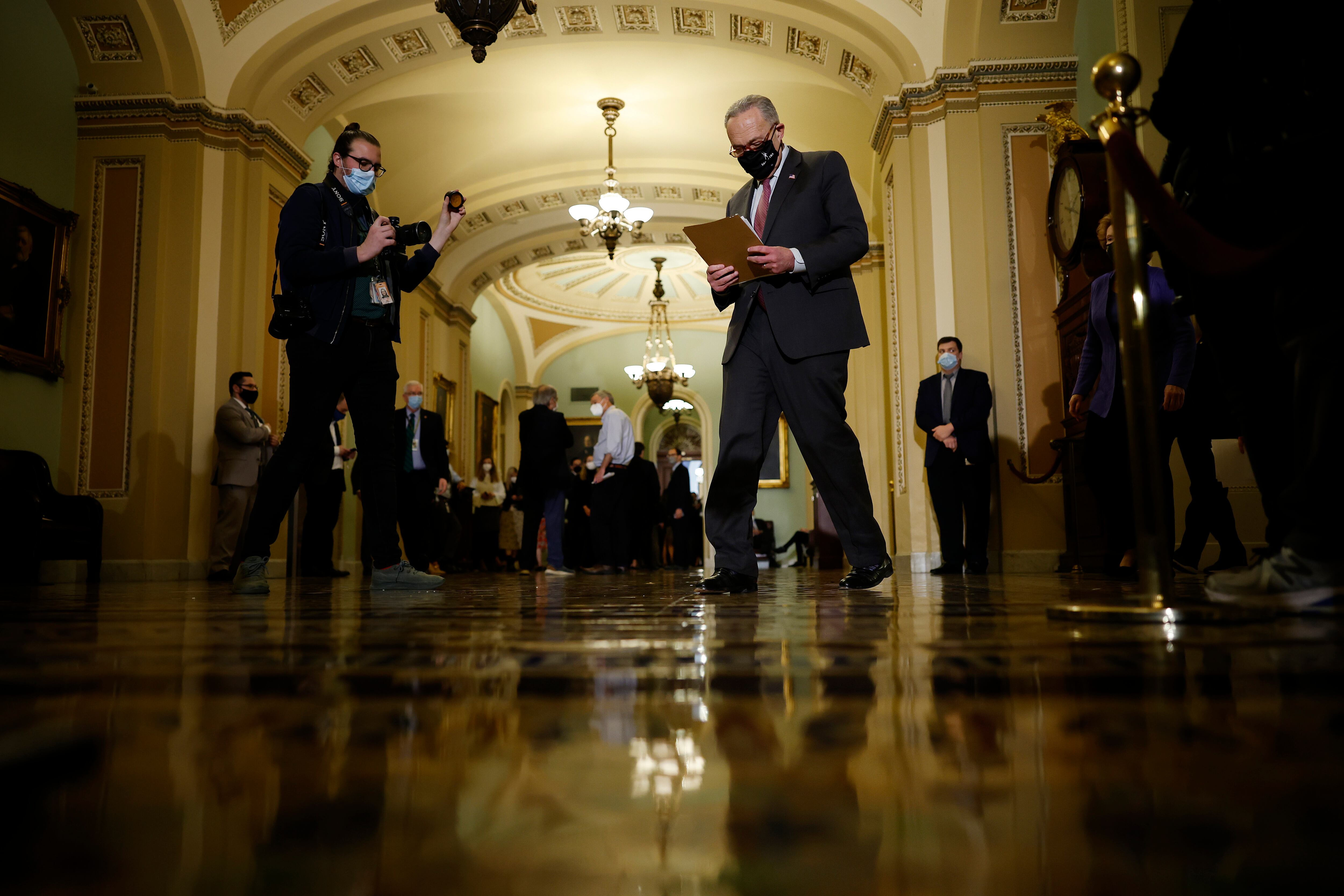
You can go throughout the government and see where Congress is not doing its job; we’ve ceded authority to the executive branch, and now the appropriators aren’t getting anything done. This place is dysfunctional. It’s got to change. I’m thrilled that our committee is able to get its work done, but everybody ought to be, and it needs to start with appropriators, and those appropriators need to take their marching orders from leadership. I would lay responsibility for this at the feet of [House Speaker] Nancy Pelosi and [Senate Majority Leader] Chuck Schumer, and not because they’re Democrats but because they’re in charge.
How will midterm elections affect the defense legislation process?
I don’t think it’s going to have a big effect on the authorizing side. It may on the appropriations side because everybody’s starting to qualify [for reelection] at the beginning of the year, and so that may factor in on the appropriators because they still haven’t got a bill passed. I mean, these CRs are killing us. If they do another CR in February to the end of the year, it’s going to basically cost [the Pentagon] $40 billion. It’s going to negate everything we just did in this authorization, plus more. And it’s just literally un-American if we aren’t doing a better job to provide for our military than that. I’m really hopeful that we, in February, do get a robust set of appropriations bills.
Your partner in spearheading the Space Force, Rep. Jim Cooper, D-Tenn., argued over the summer that the Defense Department lacks a good option for a proportional response if a U.S. satellite is attacked. We’ve since seen a Chinese anti-satellite test. Do you agree with his criticism? What’s your assessment of the Space Force now that it’s 2 years old?
I’m pleased with where we are with the Space Force. I made it clear all along this is an evolutionary period of development. We did not stand up the Space Force with the expectation that it would [immediately] do its business. We made it clear we just stood up the bare bones, and we’re adding flesh on it and muscle, and that it was a four- or five-year process.
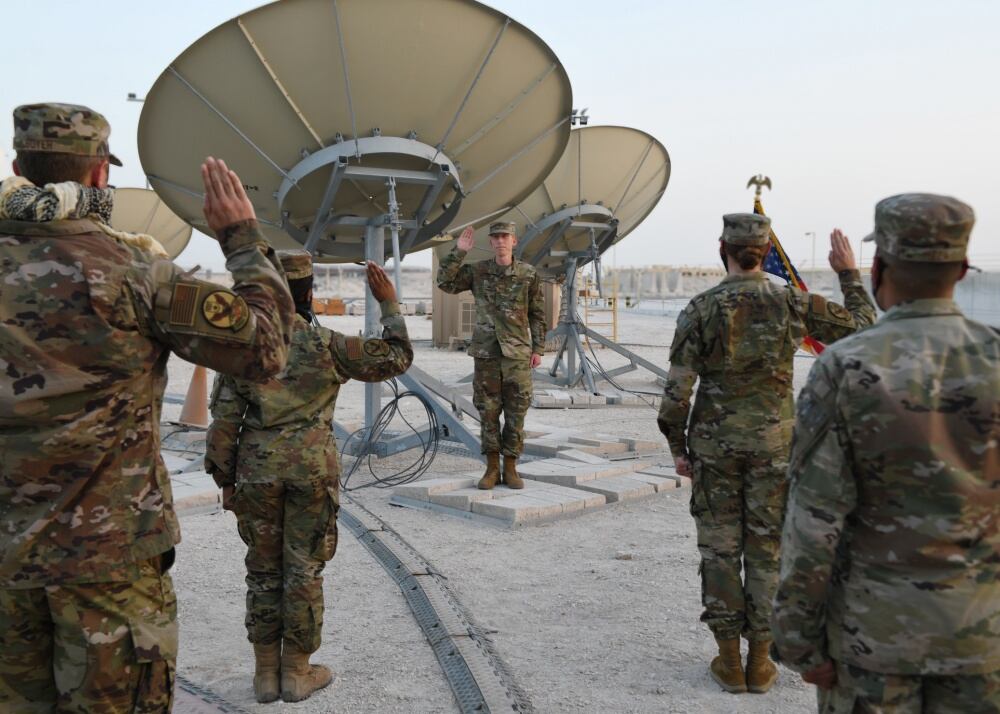
I’m very angry that the administration has yet to nominate an [Space Force] acquisition chief. Acquisition going faster was always our No. 1 goal because these satellites are so technically advanced, and we are simply going way too slow. I want to go faster, and we can’t do that without somebody in charge of that very important role. The Biden administration still doesn’t have anybody nominated, so that’s indefensible. I know we have the capability for a proportional response. They may not have the policies in place for that, but I will chase those rabbits down.
What is the priority for next year’s NDAA?
I want to see us continue to put a greater focus on cyber capabilities. I intend to see us put a lot of energy and attention into hopefully steering more resources into enlisted compensation; there’s something we should have done before now. We’re doing pretty well on officer pay, but we are not doing nearly enough when it comes to enlisted compensation. But we need appropriations bills to do any of it.
Because of wage increases around the country, the formula for military pay calls for a 4.6% increase. How much are wage increases and high inflation on your radar, and could growing personnel eat into modernization spending?
The compensation inadequacy existed before we started having [the current spike in] inflationary pressures. But it gives us a greater sense of urgency with inflation, which I don’t think goes away. I was here in the Carter administration. I remember those days were awful; this could get as bad before it’s all said and done. That will lend some energy to us making some serious adjustments. But the inflationary pressures are going to really eat away at the increases in spending that we’re making across the board. You throw on top of that these damn CRs, and it’s not a pretty picture.
You’ve criticized the president as not being strong enough on Ukraine. Should the U.S. use military force if Russia invades Ukraine? To ensure it doesn’t get to that point, what steps should the administration take?
One of the things we put in the NDAA was $300 million in aid for Ukraine, $75 million of which was lethal. I’ve been of the opinion that the president should have been sending aid to Ukraine months ago, and pre-positioning supplies and lethal aid to help it have a more muscular capability as a deterrent to Russian invasion. [The administration has] been passive. I don’t think we should send American troops over there — Ukraine is not a NATO ally. But there’s a lot we should have been doing before now, and we should be doing this with a sense of urgency to make sure the Ukrainians can take care of themselves and deter aggression.
When it comes to our NATO allies, we should be sending more pre-positioned supplies ― and troops into NATO countries on a permanent rotational basis ― to make sure we keep that place stable. I’m going to keep beating that drum, but they’re NATO allies — it’s different in Ukraine.
I don’t see this kind of stuff as escalatory; I see this as deterring aggression by reassuring allies that we have an Article 5 obligation. I can tell you that ugly, stupid withdrawal that the State Department ran out of Afghanistan hurt our standing with our allies around the world as to whether or not we’re reliable. We have some work to do to reassure our allies that we are a partner they can count on. The best place to get started is in Eastern Europe.
Something you and Rep. Mike McCaul, the House Foreign Affairs Committee ranking member, want from the administration is information about its consultations with allies regarding nuclear declaratory policy. Where does that request stand?
We’re not hearing things, just crickets. But that’s true on a lot of stuff. This administration is difficult to deal with.
A federal judge recently stopped the administration from enforcing its vaccine mandate for federal contractors, and there were reports the Pentagon is complying with that order. As someone who recovered from COVID-19, is interested in the health of the defense industry and represents a state with significant vaccine hesitancy, what’s your perspective on the mandate for federal contractors and how companies should navigate the issue?
I was always of the opinion that the executive did not have the authority to impose those mandates. I felt like if it went to a court, this is how they’d rule, and I was telling contractors that. Those contractors were screaming at me as I’ve been visiting ― because I make it a point to get out and visit a lot of these places, and particularly in the areas where we’re having missile defense issues, cyber and space ― and most of their employees are engineers. These people were saying: “I can’t replace these folks if they leave me, and they can leave me today and be making more money this afternoon in another job, working out of their home, wearing their jammies.”
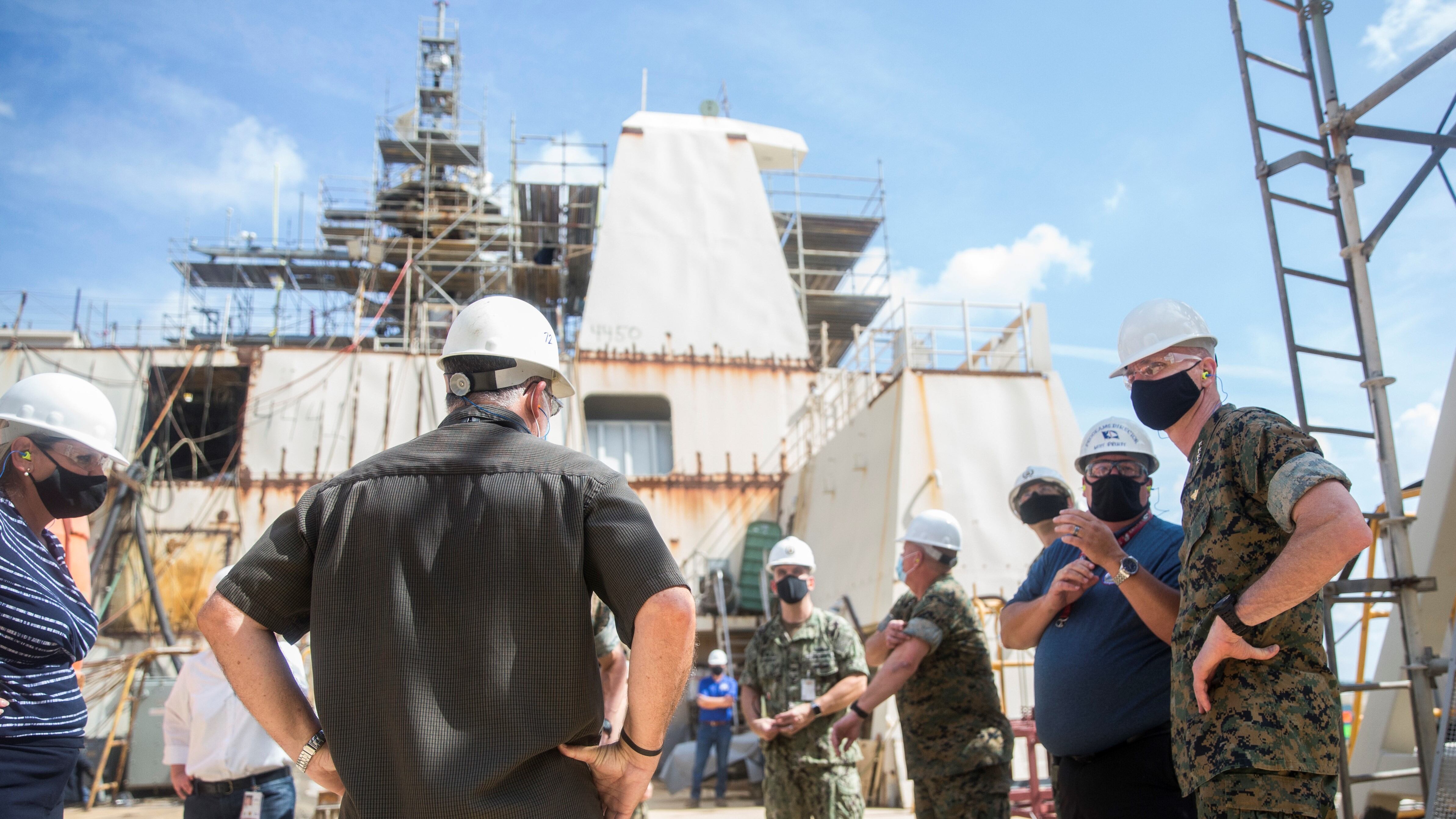
I kept hearing consistently there was a good 15%-20% [of employees] in every one these workforces that said they won’t take [the vaccine] ― some for religious reasons, some just saying: “You can’t make me.” They were really worried about being able to fulfill their contractual obligations, which comes down to a readiness problem for us. If all of a sudden we tell people that they need to make stuff for us and that we’re going to make 15% of their workforce leave, but that we still expect them to do the job, that’s completely unfair and reckless for our national security.
I hope the administration takes this as a bellwether, to think differently about their mandates going forward. Whether we like it or not, it’s still a dangerous world out there that we must prepare for.
The NDAA included Afghanistan oversight provisions. What comes next?
One of the things we require is an accounting of all the equipment that was left behind, who’s got what. That’s going to stimulate oversight. We continue to get Americans and allied friends out, and you’re going to see hearings and oversight over how that’s progressing. That area is going to continue to be a — it’s going to worsen as far as its potential to be a breeding ground for terrorists that we have to deal with. I think our intelligence, surveillance and reconnaissance needs over there will get a lot of attention next year because what we had access to is now not accessible.
Afghanistan is not going to fall off the radar screen. You’re seeing already a pivot to the Indo-Pacific area. You’re going to see in the first part of the year a lot of attention in Eastern Europe, but Afghanistan will be on our radar screen. I hate it, but I wouldn’t be surprised to see us go back in there within the next few years.
There was a significant increase over the request for the Pacific Deterrence Initiative. Will that trajectory continue?
They’re going to get a lot more attention and a lot more resources. That’s where the real threat is. So Indo-Pacific Command is going to get a lot of attention in the foreseeable future, and a lot more resources are geared in that direction. Beyond that, events are going to drive what we do.
Joe Gould was the senior Pentagon reporter for Defense News, covering the intersection of national security policy, politics and the defense industry. He had previously served as Congress reporter.

